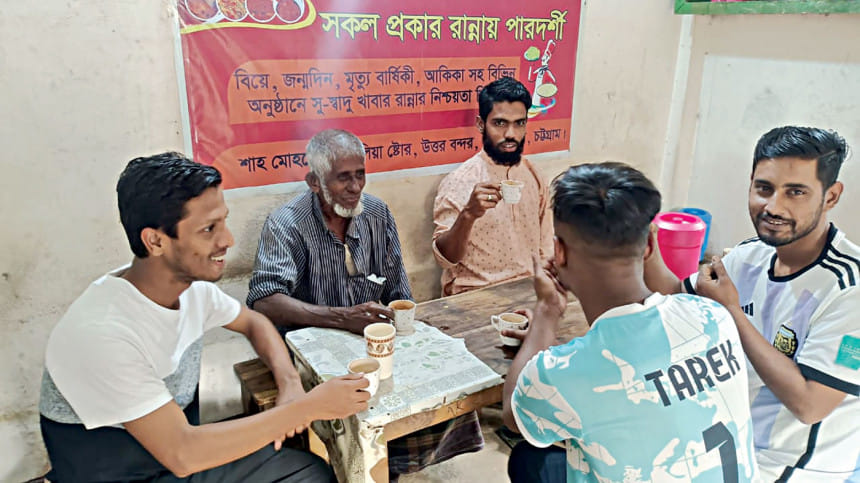Keeping their language alive

"Tu dopahar ke khana kha lenhi kii?" (Did you have lunch?)
This correspondent heard Nitai Kumar Sing, 70, asking his grandson this when he arrived at Uttar Bandar village in Chattogram's Anwara upazila.
In this small hamlet nestled on the bank of Karnaphuli river, a rare mother tongue is clinging to life.
This is the Khotta language, which can be heard in every home of this village, which stands under the shade of the Deyang Hill.
Dwellers there, from children to the elderly, commonly use phrases like "Tu kaisan hain (How are you?), Hume thik hain (I am fine)" to communicate among themselves.
However, Khotta faces an uncertain future.
While the village elders try their best to keep the language alive, the little ones are growing up without learning the language for the absence of a written script and education in the dominant tongue.
"Khotta is our root and culture, not only a language," Nitai said, adding, "We still speak this language to keep our mother tongue alive."
WHO ARE THE KHOTTAS?
At this point, one might be wondering why the dialect sounds similar to Hindi. It's because the Khotta community's people came to Chattogram from Varanasi of India as soldiers during the Mughal reign in 1666, according to History of Deyang Pargana, written by historian Md Jamal Uddin.
At present, the community has around 8,000 people in 1,000 families, belonging to both Hindu and Muslim religions, according to data of local union parishad.
According to researchers, Khotta language originated from Khortha, a language with Devnagari script used predominantly in the Indian state of Jharkhand.
AN ENDANGERED LANGUAGE
Khortha is an endangered language and is on the verge of losing its identity, according to a study.
The study, titled "Khortha, a Dying Language and Urgency to Retain its Pure Variety", published in 2018, was conducted by two researchers of Indian Institute of Technology (ISM), Jharkhand.
"Despite challenges, we kept communicating with each other through our mother tongue," said Moriom Begum, a Khotta speaker and vice chairman of Anwara upazila parishad.
However, most children are reluctant to speak in the language as they need to use a second language for their daily communication and studies, she added.
Historian Md Jamal Uddin said, "The people of this community learn Khotta verbally from family members as they have no written script."
Nur Mohammed, a Khotta speaker, said, "As a language, Khotta already lost relevance in the social and cultural spheres. We need government's support to save the language from fading away."

 For all latest news, follow The Daily Star's Google News channel.
For all latest news, follow The Daily Star's Google News channel. 



Comments